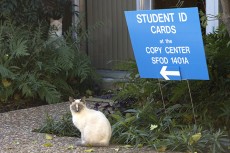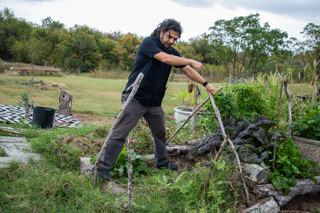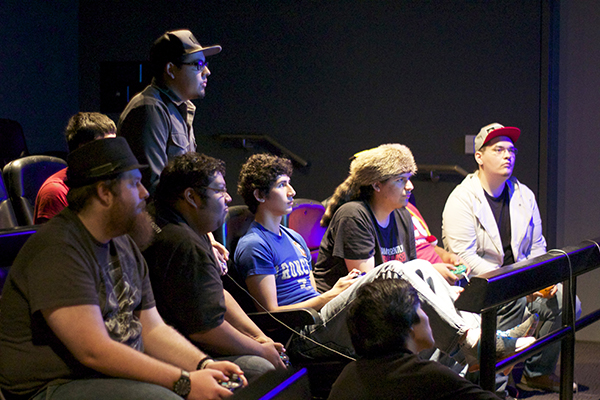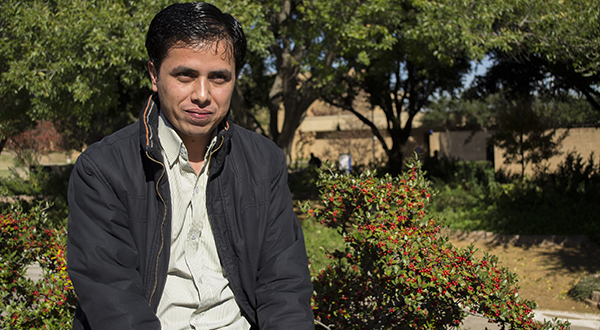By Samuel Medina III/ south news editor
The feral cats living on South Campus may try to keep themselves hidden, but they’ve recently caught the attention of administration and South president Peter Jordan.
With the number of feral cats living on campus on the rise, faculty and staff have joined to take care of the situation.

Bogdan Sierra Miranda/The Collegian
Panther City Rescue, Texas Christian University and the University of North Texas have been working with Jordan to find the most effective way to keep the feral cat population on campus under control.
Executive administrative assistant Kay Harkness said they do not want to simply get rid of the cats but properly treat them.
“President Jordan is currently putting a group together to take care of the cats,” she said. “They are working to form a plan to address the situation.”
Biology professor Terri Lindsey said Jordan held a meeting with faculty to raise awareness of the problem and was looking for a solution other than euthanasia.
“What we wanted to do is see what we can do to keep the campus looking good and deal with the feral cats,” she said. “So [Jordan] called a meeting, and now we’re all setting up the South Campus Feral Cat Coalition.”
The goal of the coalition is to safely spay or neuter, vaccinate and release the cats back where they were caught with the help of other organizations.
“He did invite TCU and Panther City Rescue to get input to see what other groups and campuses are doing,” Lindsey said. “We’re going to model our group on what TCU, UNT and what the city of Fort Worth is doing.”
Lindsey said the open fields and neighborhoods around the campus create the perfect environment for feral cats.
“There are lots of ways to get students involved,” she said. “We can also teach them how to handle feral cats and how important they are in the ecosystem.”
Although the initial plan was to get rid of the cats, a new plan was made with the advice of others who have had feral cat problems as well.
“If you get the feral cats fixed and then returned, then you’re not going to have additional kittens, and the population is going to stay stable,” she said. “It keeps a stable population of healthy cats. The cats serve a purpose for the campus. They do take care of rodents, snakes and different varmints like that. They’re very good predators.”
It is proven that instead of relocating or euthanizing the cats, spaying or neutering and putting the cats back is more effective.
“You rarely see the cats out. It’s not like they’re a nuisance or a danger to anybody because they’re scared of us as we are of them,” she said.
Lindsey said the goal is just to spay or neuter and release the cats so they can continue living on campus.
“Then we let everyone know these are cats that have been vaccinated so there’s no danger of disease or anything. They’re South Campus cats,” she said.
Lindsey said the coalition would like the students to stop putting sandwiches out for the cats because some of the faculty and staff members have been feeding and taking care of the feral cats with their own money.
“What is very amazing to me is that this is not just faculty,” she said. “This is faculty, campus police and grounds people. It’s not just one group. It’s everyone working together.”
Although the feral cats pose no real threat, Lindsey urges students to be careful and not approach them.
“You don’t go up to them and try to pet them because you might get scratched or bitten,” she said. “They’re feral cats, but they serve a purpose on this campus.”
Lindsey said as new generations of cats make South Campus their home, they will repeat the spay or neuter process to keep the population of cats stable.
“The solution is to trap, fix, vaccinate and release. The solution is not to trap and euthanize,” she said. “We’re very excited, and I can see us being the model for other campuses.”























